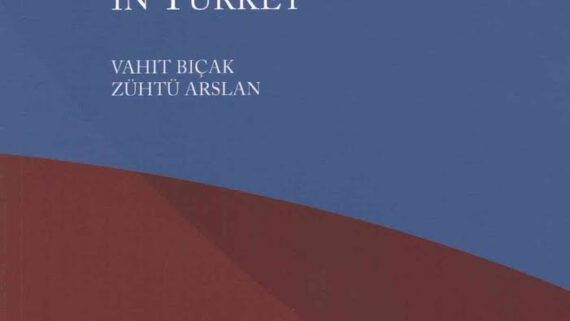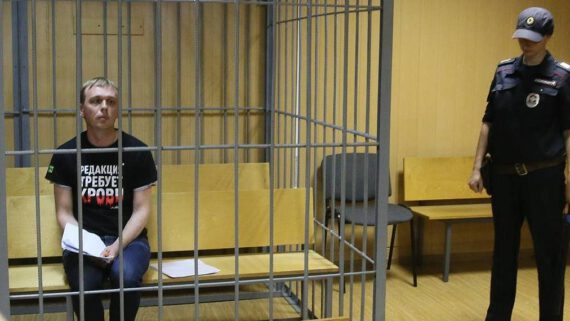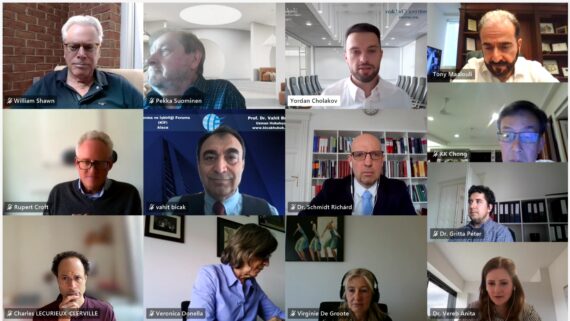The phenomenon of high national ego combined with low collective self-esteem describes a psychological contradiction in which countries display exaggerated pride and demands for recognition while harboring deep internal insecurity and a persistent need for validation. This dynamic is particularly visible in states grappling with unresolved historical legacies, geopolitical ambition, or perceived status decline. Such emotional imbalance can lead to authoritarian domestic politics, where dissent is framed as disloyalty and symbolic gestures take precedence over structural reforms. In foreign policy, it produces erratic behavior—alternating between assertiveness and sensitivity—that complicates international relations and undermines strategic credibility. Turkey exemplifies this paradox, though similar patterns can be observed in other post-imperial or transitional societies. The contradiction affects national narratives, education, media discourse, and leadership styles, often reinforcing a cycle of defensiveness and overcompensation. A healthier national identity requires shifting from reactive pride to grounded self-confidence, built through critical education, responsible leadership, civil society engagement, and constructive diplomacy. Resolving the paradox is not only a matter of psychological maturity but also a prerequisite for stable governance and meaningful global cooperation.
The High Ego – Low Self-Esteem Paradox
What if nations, like people, had psychological profiles? Just as individuals can project confidence while secretly battling insecurity, countries too can exhibit contradictions in how they perceive themselves – and how they interact with the world. One of the most striking paradoxes in the modern international landscape is the phenomenon of “high ego, low self-esteem” at the national level.
This duality is often seen in states that proudly assert their greatness, historical significance, or global relevance, yet react defensively to criticism, fear external judgment, or display deep sensitivity to how they are perceived. These nations seek validation, but reject it when it arrives; they celebrate their independence, but remain consumed by perceived slights. The result is a fragile assertiveness, a kind of emotional nationalism that drives erratic policies, polarizes societies, and complicates international relationships.
Countries such as Russia, Turkey, Iran, Argentina, and others present different versions of this psychological tension. While their historical, political, and cultural contexts vary, they share a common tendency to oscillate between grandiosity and grievance, pride and paranoia. Often emerging from imperial legacies, colonial pasts, or prolonged geopolitical isolation, these nations carry the scars of past humiliation or marginalization – while simultaneously nurturing dreams of restored greatness.
Understanding the roots, symptoms, and consequences of the high ego–low self-esteem paradox in national identity reveals much about how emotionally driven political behavior shapes both domestic policies and international relations. The phenomenon is especially pronounced in countries that have undergone historical ruptures, abrupt transitions of power, or prolonged periods of marginalization. In such cases, grand national narratives coexist with feelings of underappreciation and vulnerability. Turkey, for instance, illustrates this paradox vividly, yet it is not alone – similar psychological patterns can be observed in various post-imperial and ideologically embattled states. Exploring these shared traits across different national contexts helps explain how and why this emotional contradiction emerges – and what conditions might be necessary for nations to transcend it.
Understanding Collective Ego and Self-Esteem
In the realm of political psychology, the concepts of ego and self-esteem, typically applied to individuals, can be meaningfully extended to the behavior of nation-states. A collective ego refers to a nation’s self-image – how it sees itself in relation to the world. This can manifest as a sense of historical grandeur, moral superiority, or cultural uniqueness. When inflated, it gives rise to nationalistic bravado, hyper-sensitivity to criticism, and an obsession with symbolic status.
Collective self-esteem, on the other hand, reflects how secure and confident a nation feels about its place in the international community. High self-esteem enables countries to respond constructively to setbacks, criticism, or evolving global roles. Low self-esteem, however, breeds resentment, paranoia, and overcompensation – nations may act tough not out of strength, but to mask deep-seated insecurities.
This high ego-low self-esteem dynamic is particularly visible in countries where there is a mismatch between perceived national greatness and actual global status. In such cases, national pride is loudly asserted, but it is fragile and reactive – prone to perceiving criticism as existential threat. Rather than building confidence through stability, prosperity, or institutional strength, these nations seek reassurance through external validation, historical nostalgia, or confrontation.
This paradox is not inherently tied to any particular region or regime type. It has been observed in post-imperial states, where the collapse of a once-mighty empire left an emotional vacuum; in post-colonial societies, where independence did not bring the expected dignity or prosperity; and in geopolitically isolated nations, where perceived encirclement fosters a siege mentality.
Understanding this psychological dissonance provides a lens for interpreting foreign policy decisions, media narratives, and public sentiment in several modern states – including, but not limited to, Turkey, Russia, Iran, China, and Argentina.
Historical Roots of the Paradox
The high ego–low self-esteem paradox in national identity often originates in traumatic historical transitions – moments when a nation’s perceived greatness was interrupted, reversed, or forcibly redefined. These ruptures leave psychological imprints that shape how collective identity is constructed and maintained.
One common root is the collapse of empire. Former powers such as Turkey (Ottoman Empire), Russia (Tsarist and Soviet empires), and Iran (Persian Empire) experienced dramatic declines in territorial control, geopolitical influence, and symbolic prestige. In the wake of these collapses, national narratives sought to preserve a sense of dignity and continuity, often through selective remembrance of past glory. Yet beneath the pride lay a lingering sense of loss, humiliation, and displacement, especially when new global power structures marginalized their role.
In some cases, these historical breaks were followed by rapid modernization or Westernization, creating identity conflicts between old and new orders. For example, Turkey’s early Republican period, under Mustafa Kemal Atatürk, replaced centuries of Islamic-Ottoman tradition with a secular, Western-oriented identity. While this reformist zeal instilled national pride, it also created unresolved tensions between traditional values and modern aspirations – leaving the national psyche both aspirational and defensive.
Similarly, post-colonial nations such as India, Algeria, and Indonesia emerged from decades or centuries of foreign domination with a powerful desire to reclaim their dignity. National ego was fortified by independence, but self-esteem remained vulnerable – compromised by economic struggles, internal divisions, or the continued perception of unequal treatment on the global stage.
Even in democratic or economically developed nations, this paradox can emerge. Argentina, for example, once one of the wealthiest countries in the world, has experienced recurring economic and political instability. This has fueled a sense of unfulfilled potential and cyclical disillusionment, feeding both pride in its cultural richness and a frustration with its perceived underachievement.
What unites these diverse cases is the psychological residue of “being once great” or “deserving more”, combined with a chronic feeling of being misunderstood, mistreated, or underestimated by the rest of the world. This cognitive and emotional dissonance fosters a nationalism that is proud, but easily wounded – a fragile ego that lashes out when its sense of self is challenged.
Contemporary Manifestations of the Paradox
In today’s global arena, the high ego–low self-esteem paradox reveals itself in a wide range of behaviors – from political rhetoric to foreign policy choices and public sentiment. Countries navigating this tension often appear defiant yet insecure, projecting strength while simultaneously seeking affirmation.
One of the most visible manifestations is in foreign policy, where states oscillate between cooperation and confrontation. Turkey, for instance, frequently asserts its regional leadership and sovereignty in strong nationalist terms – whether in Mediterranean maritime disputes, military operations in neighboring countries, or its shifting alliances within NATO and beyond. Yet, at the same time, Turkish political discourse often reflects a deep concern about being misunderstood, disrespected, or left out of decision-making processes by the West. This duality reinforces a posture of “strategic autonomy” laced with emotional volatility.
A similar pattern is visible in Russia, which has long emphasized its status as a global power, even as it expresses grievance over NATO expansion and Western sanctions. The annexation of Crimea and the broader posture toward Ukraine reflect not only geopolitical calculation but a desire to reclaim perceived lost stature and dignity.
In the domestic sphere, the paradox manifests in media narratives and cultural discourse. National pride is amplified in public messaging – through grand projects, military parades, or references to historical victories – while criticism from international actors is dismissed as hostile, biased, or part of a broader conspiracy. This reactionary stance often serves to shield internal audiences from perceived humiliation, while reinforcing loyalty through shared victimhood.
Public opinion in such countries frequently reflects this emotional tension. Citizens may simultaneously believe in the moral superiority of their nation and express frustration or resentment at how their country is portrayed abroad. This sensitivity can fuel populist or authoritarian movements that promise to restore national dignity and resist “foreign interference.”
Education systems, too, may play a role in sustaining the paradox – emphasizing national pride and historical accomplishment while omitting or downplaying past failures or present vulnerabilities. This breeds fragile confidence: citizens are proud of their identity, but lack the resilience to accept constructive critique or engage in global dialogue without defensiveness.
Even in arenas like sports and the arts, emotional overinvestment in international recognition can reflect this insecurity. Victory becomes proof of national greatness; defeat is taken personally, or attributed to unfairness rather than accepted as part of normal competition.
In short, the high ego–low self-esteem paradox continues to shape the psychological landscape of nations, particularly those that perceive themselves as historically important yet presently unrecognized. The result is often a national identity in flux, caught between aspiration and grievance, pride and pain.
Consequences for Domestic and Foreign Policy
The emotional imbalance between inflated national ego and low collective self-esteem does not remain confined to rhetoric or self-perception – it actively shapes policy choices, often in counterproductive or unstable ways. Governments responding to this internal contradiction may pursue policies that are symbolically satisfying but strategically costly, both at home and abroad.
In domestic politics, the paradox often fuels authoritarian tendencies. Leaders exploit national pride while nurturing perceived grievances, positioning themselves as defenders of the nation’s honor against foreign criticism, domestic dissent, or imagined conspiracies. Political opponents and independent institutions are portrayed as weak, treacherous, or foreign-influenced, contributing to democratic backsliding. Public discourse becomes saturated with binary narratives: “us vs. them,” “loyal vs. disloyal,” or “proud vs. traitorous.”
Policy decisions are likewise shaped more by the desire to appear strong than by long-term planning. For example, a government might prioritize the construction of prestige infrastructure projects or stage highly publicized international events not for their practical benefit, but to project an image of progress and capability. Meanwhile, unresolved structural issues – education, justice, inequality – may remain neglected because addressing them requires self-critique and institutional humility.
In foreign policy, the paradox leads to strategic overreach or reactive isolationism. Countries with high egos but low self-esteem often seek to punch above their weight – to demand influence disproportionate to their economic or diplomatic capital. They may reject international norms or alliances out of resentment, but still crave validation from those same actors. This creates an unpredictable foreign policy that swings between assertiveness and insecurity, confusing allies and emboldening adversaries.
A salient example can be found in Turkey’s complex relationship with the European Union. While Turkish leadership demands equal footing and respect as a sovereign actor, frustration with perceived EU hypocrisy or elitism has contributed to a turn away from accession goals, often in favor of more assertive regional engagement. Yet Turkey still maintains economic and institutional ties to Europe – underscoring the emotional and strategic ambivalence at play.
The long-term consequences of this paradox can be significant. It can isolate countries diplomatically, reduce foreign investment, strain civic trust, and stunt democratic development. Perhaps most critically, it risks creating a national culture in which criticism is equated with betrayal and resilience is confused with denial.
Without a recalibration of self-perception – toward a confident, self-aware nationalism grounded in reality rather than fantasy – the paradox remains a structural impediment to progress.
Legal Reflections on Fragile National Identity
Nations burdened by a fragile sense of identity – exhibiting high ego yet low collective self-esteem – often channel their psychological dissonance into the legal and institutional spheres. Law becomes not only a tool of governance but a symbolic battleground where national pride is asserted, dissent is suppressed, and historical narratives are codified into legal norms.
In such environments, constitutional frameworks tend to reflect anxieties about sovereignty and unity. Provisions emphasizing indivisibility of the state, rigid definitions of national identity, or expansive national security clauses are often framed as legal safeguards but function as instruments of control. These legal constructs reveal more about insecurity than strength – seeking to insulate the state from perceived threats to its legitimacy, both real and imagined.
Judiciaries in ego-insecure nations are frequently under pressure to align with the dominant national narrative. Judicial independence may be formally enshrined but often undermined in practice, especially when courts are expected to validate executive decisions that bolster national pride or silence critical voices. Laws criminalizing “insulting the state,” “undermining national values,” or “spreading disinformation” serve this purpose, transforming legal codes into psychological armor for the regime.
Moreover, such legal environments typically display a paradoxical relationship with international law. On the one hand, governments demand respect and recognition on global platforms; on the other, they resist international legal standards when these challenge domestic interpretations of history, identity, or justice. The result is often selective legalism – embracing external norms only when they reinforce internal narratives.
For law firms and legal practitioners, navigating these contexts requires a nuanced understanding of how national psychology influences not just political rhetoric but legal practice itself. Legal reasoning may be shaped as much by collective emotion as by doctrine. Advocacy in such settings involves not only technical legal skill, but also strategic empathy – recognizing when legal arguments must align with deeply rooted identity sensitivities to be persuasive or even admissible.
Understanding the emotional substrate of national identity is thus essential for any meaningful engagement with law, justice, and governance in fragile states. When law becomes a mirror for insecurity, its restorative power is weakened. But when approached critically and constructively, legal systems can also serve as paths to healing – providing structure, fairness, and accountability that help nations grow into more secure and confident democracies.
Toward a Healthier National Identity
The paradox of high ego and low self-esteem in national identity is not a superficial contradiction but a deep-rooted psychological condition that influences how a nation sees itself, treats its citizens, and engages with the world. Countries caught in this cycle – boasting inflated rhetoric while struggling with self-doubt – often adopt defensive postures in politics, restrictive narratives in education, and coercive tools in law.
As explored through the lens of psychology, governance, and legal structures, the manifestations of this paradox are far-reaching. From populist leadership styles to symbolic legislation, from hypersensitive foreign policies to the erosion of judicial independence, fragile national egos exert a quiet but pervasive pressure on democratic institutions and civil liberties.
Importantly, this emotional architecture is not unique to any single country. While Turkey provides a particularly illustrative case – with its complex history, oscillating geopolitical orientation, and persistent quest for recognition – similar dynamics are observable in various post-imperial, post-colonial, or transitional societies, such as Russia, Hungary, and parts of the Global South.
Resolving the tension between inflated national pride and deep-seated insecurity requires more than cosmetic reforms or nationalist messaging. It demands emotional maturity at the national level – a shift from reactive posturing to reflective self-assessment. Education systems must promote critical thinking over dogma. Political leadership must resist exploiting national grievances for short-term gains. Legal institutions must be insulated from symbolic politics and empowered to uphold rights impartially.
Perhaps most crucially, a nation’s confidence should not depend on denial or dominance, but on its ability to confront uncomfortable truths, honor pluralism, and strive for genuine equity. Only by reconciling pride with humility, ambition with accountability, and heritage with openness can nations emerge from this psychological trap – and build more stable, just, and respected societies.
 English
English Türkçe
Türkçe Français
Français Deutsch
Deutsch










Comments
No comments yet.